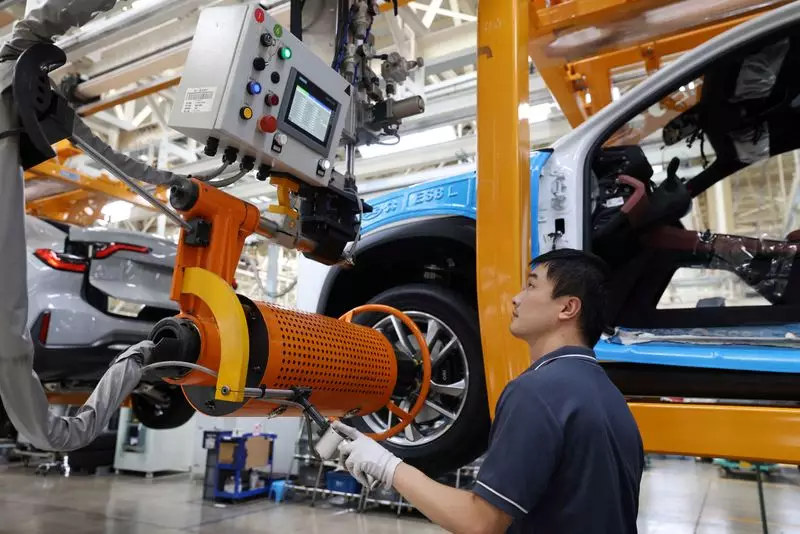China’s manufacturing sector experienced a significant slowdown in August, as indicated by the official factory survey. The purchasing managers’ index (PMI) dropped to a six-month low of 49.1, falling below the 50-mark that separates growth from contraction. This decline for the fourth consecutive month was unexpected, raising concerns about the state of the economy.
The weakening manufacturing sector is prompting policymakers to reconsider their strategies for economic stimulus. There is growing pressure to redirect resources toward supporting households rather than infrastructure projects. The move is seen as a necessary shift to boost consumer spending, which has been relatively subdued compared to previous years.
One of the key obstacles to economic recovery is the sluggish consumer market in China. Despite efforts to stimulate spending, a significant portion of household wealth remains tied up in the struggling property sector. This has led to a decline in consumer confidence and decreased willingness to make discretionary purchases.
The slump in the property sector over the past three years has had a profound impact on consumer behavior. With a large percentage of household wealth concentrated in real estate, the sharp decline in property prices has deterred consumers from increasing their spending. This has further exacerbated the challenges facing China’s manufacturing sector.
While there have been some positive indicators, such as an uptick in retail sales, the overall outlook for China’s manufacturing sector remains uncertain. The government’s efforts to boost consumer spending are crucial for sustaining economic growth. However, additional policy measures may be needed to address the deep-rooted issues in the property sector and restore confidence in the economy.
China’s manufacturing sector is facing significant challenges due to a slowdown in activity and weak consumer spending. Policymakers must be proactive in addressing these issues to prevent further economic deterioration. By focusing on supporting households and implementing targeted stimulus measures, China can work towards a more sustainable and balanced economic recovery.

